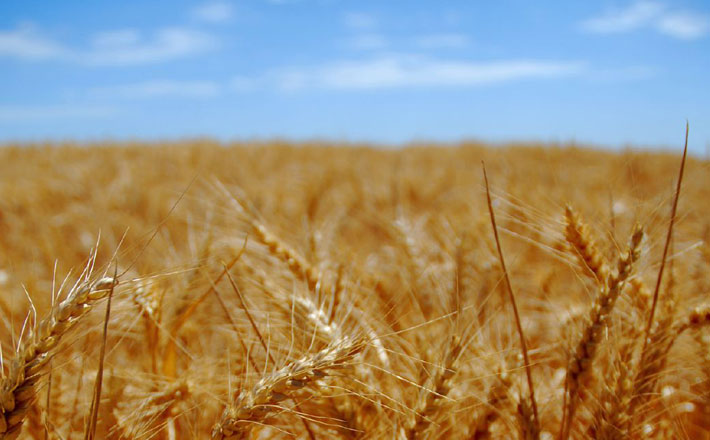Commentary on Psalm 92:1-4, 12-15
The superscription for Psalm 92 declares it to be “a song for the Sabbath day.”
This may be puzzling to readers, for the Sabbath is not referenced anywhere in the rest of the psalm. It may be, however, that understanding the setting of the Sabbath is key for interpreting the entire work. This psalm warrants our careful theological consideration.
The Praise of God
The psalm opens with lines that no one faithful to God would doubt: “It is good to give thanks to the Lord, to sing praises to your name, O Most High.” This proclamation sets the positive tone for the whole psalm and is a worthy reminder of the value of worship. Verse 2 names the two chief qualities of God that become the basis of our thanksgiving and praise: God’s “steadfast love” and “faithfulness.” “Steadfast love” is the NRSV’s translation of the single Hebrew word khesed. The Hebrew meaning is difficult to convey with any single English expression, and thus we see different English Bibles using a variety of translations in different contexts: steadfast love, lovingkindness, love, kindness, mercy, loyalty, favor, devotion, goodness, and still others. The range of translations gives a sense of the broad meaning of the word. God’s khesed and faithfulness (Hebrew emunah) are the two primary attributes of God’s covenant relationship with Israel, as expressed in the self-revelation of God given to Moses at Mt. Sinai: “The Lord, the Lord, a God merciful and gracious, slow to anger, and abounding in steadfast love and faithfulness” (Exodus 34:6).
That God is to be praised both morning and night (v. 2) adds to the intensity of the worship. The significance is furthered still by the addition of musical instruments to the praise in v. 3: the lute, harp, and lyre. This suggests a formal setting of worship, as certainly few in ancient Israel would have had access to all three instruments — and certainly no one could play them all together! Corporate worship is not to be neglected. Verse 4 indicates that it is God’s “work” that provides the impetus for such praise. While the psalmist may have in mind especially the victory over enemies described in vv. 10-11, the expression here in v. 4, simply “your work … the works of your hands,” is general enough that different participants in worship will no doubt think of many different things that God may be praised for.
What’s Skipped
Verses 5-11 are omitted from the lectionary reading. In these the praise theme is continued, and two additional features, both common in the psalms, are added: God’s provision of victory over enemies, and a contrast between the wicked and the righteous (the latter more common yet in the wisdom literature). The discussion of the wicked sets up the discussion of the righteous that begins in v. 12.
The Righteous Flourish?
The second part of today’s reading begins with an assertion that the righteous flourish (v. 12), comparing their flourishing with that of two important trees of the area, the palm and the cedar of Lebanon. The latter is referred to frequently throughout the Old Testament as a symbol of strength. Verse 14 adds to the picture of the flourishing of the righteous, continuing with the tree symbolism, by asserting that they still produce fruit, even in old age, and that they are “always green and full of sap.” The comparison of those who follow God with thriving trees is a common one in scripture (e.g., Psalms 1:3; 52:8; 104:16).
Isn’t here where the text becomes problematic for us? Our own experience and our knowledge of history teach us that the righteous indeed do not always flourish, that in fact it is precisely the righteous who frequently suffer more than others. This is, of course, a common problem both in scripture and for theology more broadly. In this case, however, a solution is suggested by the psalm itself.
The key is v. 13. The depicted flourishing of the trees includes their location: “They are planted in the house of the Lord; they flourish in the courts of our God.” The combination of thriving flora and temple imagery, such as is seen here, is actually quite common. Such is the basis for the picture of paradise as a magnificent garden, filled with the divine presence, seen in both Genesis 1-3 and in Revelation 21-22 (Ezekiel 47:1-12 also presents a wonderful picture of this, specifically in connection with the Jerusalem temple). The flourishing of the righteous is thus rooted (pardon the pun) in the presence of God.
The Eschaton and the Sabbath
This fact invites us to think eschatologically about the psalm. If the flourishing of the righteous happens in the house of God, then we are not there yet. As Paul says, we still long “to be clothed with our heavenly dwelling” (2 Corinthians 5:2). We still live in a world where God’s presence is experienced, to be sure, but not in the fullest sense. For that we wait for the coming of God’s kingdom in power, for “the day of the Lord.” The depiction of the flourishing of the righteous in the psalm is something we look forward to, and for which we praise God in moments when we do experience it in this life.
Here is where the Sabbath connection of the psalm comes in. In Jewish tradition the Sabbath was understood as a symbol of the perfect rest to come. The Mishnah (the earliest collection of Jewish tradition) tells us that this particular psalm was sung by the Levites in the temple on the Sabbath (Tamid 7:4). The psalm is described as “a song for the world that is to come, for the day which is wholly Sabbath rest for eternity.”1 Hence there is a connection between eschatology and the Sabbath. The New Testament book of Hebrews picks up on this idea of the Sabbath as something to be fulfilled only in God’s kingdom (3:7-4:11). Proclaiming this psalm, then, is an act of faith — we declare God’s steadfast love and faithfulness, while we yet wait for its promise of the flourishing of the righteous to be fulfilled.
Notes:
1 The Mishnah: A New Translation, trans. Jacob Neusner (Yale University Press, 1991), ad loc.


June 14, 2015